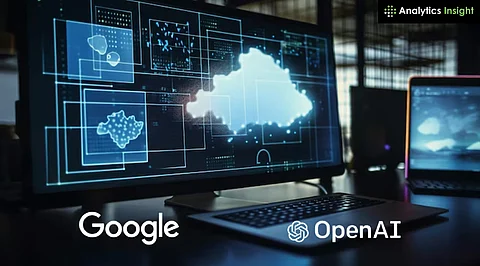

According to reports, OpenAI is in talks with Google Cloud regarding a partnership for its surging computing requirements. Demand spiked recently: Altman said that the company's "GPUs are melting" amid a surge in Ghibli-style image creation.
OpenAI's cloud was previously solely built on top of Microsoft Azure. But now, with the new agreement that closed in May, Google has also been brought into the picture. According to Reuters, this cloud deal follows prolonged negotiations lasting months.
The Google Cloud deal is part of a broader attempt by OpenAI to diversify its compute resources. While Microsoft remains the main provider, OpenAI signed deals with Oracle, SoftBank's Stargate program, and CoreWeave as well.
The big partnership with Google adds capacity for the training and inference of AI models. According to sources, the urgency of GPU demands increased to a point where Azure alone could not meet it, Reuters says.
This agreement is a significant win for Google's cloud business. It demonstrates the power of Google's infrastructure under some pressure from Amazon and Microsoft, which is difficult. However, Scotiabank analysts articulated it as "a big win for Google's cloud unit" and indicated concern that ChatGPT may threaten Google's search dominance.
Following news of the deal, Alphabet saw a little rise in stock price, approximately 2%, but it is still down roughly 5% on a YTD level.
The alliance is formed in battle as OpenAI’s ChatGPT and Google’s Gemini battle for dominion in the landscape of AI. Some at Google have recently said that it might not be a winner-take-all race.
Google's support of a competitor for compute needs illustrates how the nature of infrastructure alliances is changing, given the amount of demand for GenAI.
Reports about GPU capacity strains at OpenAI’s facilities started coming out this spring, especially after Altman made his viral comment in March that "GPUs were melting.” CoreWeave will provide Nvidia-based compute via Google Cloud to accommodate the capacity gap.
OpenAI calculated its run rate of annual revenue at $10B recently, showcasing how swiftly infrastructure needs are developing.
This landmark partnership allows both parties to break conventional rivalries between them, we marry competitive context to real infrastructure needs. For OpenAI, the partnership reduces reliance on Microsoft and can speed model development; for Google Cloud, the deal offers a unique positioning boost and reinforces Google Cloud's place among hyperscalers.
This raises the question of whether the success of ChatGPT puts pressure on Google's search business. When we come together, we represent an expanding AI space where scaling can only be achieved in partnership.
